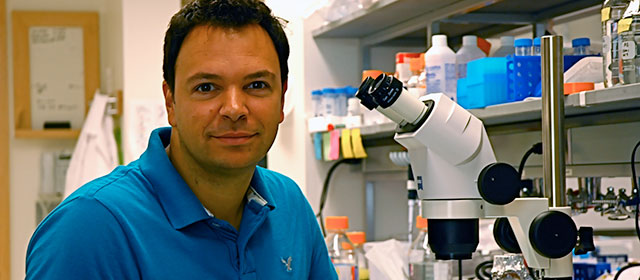
Geneticist and developmental biologist Antonio Giraldez investigates where human life begins.
By: Daniel Krieger
Antonio Giraldez, a geneticist and developmental biologist specializing in embryos, sees the trajectory of his career in a rather unusual light. For Giraldez, there's a clear parallel between his own development as a scientist and the fundamental transition an embryo undergoes that marks the beginning of life.
When an embryo initially forms, instructions from the mother's body guide the first few hours of development. Then, the embryo's own genome activates and development continues according to its instructions. "Think of it as breaking the link with your mom when you become a teenager," Giraldez says. "She has taught you a lot of things, but you need to explore the world on your own. The embryo does that, too."
His long-term investigations into how this biological process works have led to important discoveries, all of which stem from his endless fascination with the mechanisms that make life happen. "How a fertilized egg makes a new organism shows that the book of life is written with the same language," he says. "The same instructions are used over and over to make very different species and different parts of the animals, and when these signals are activated in the wrong place or time, that can cause disease, which is why we need to understand how animals develop from an egg."